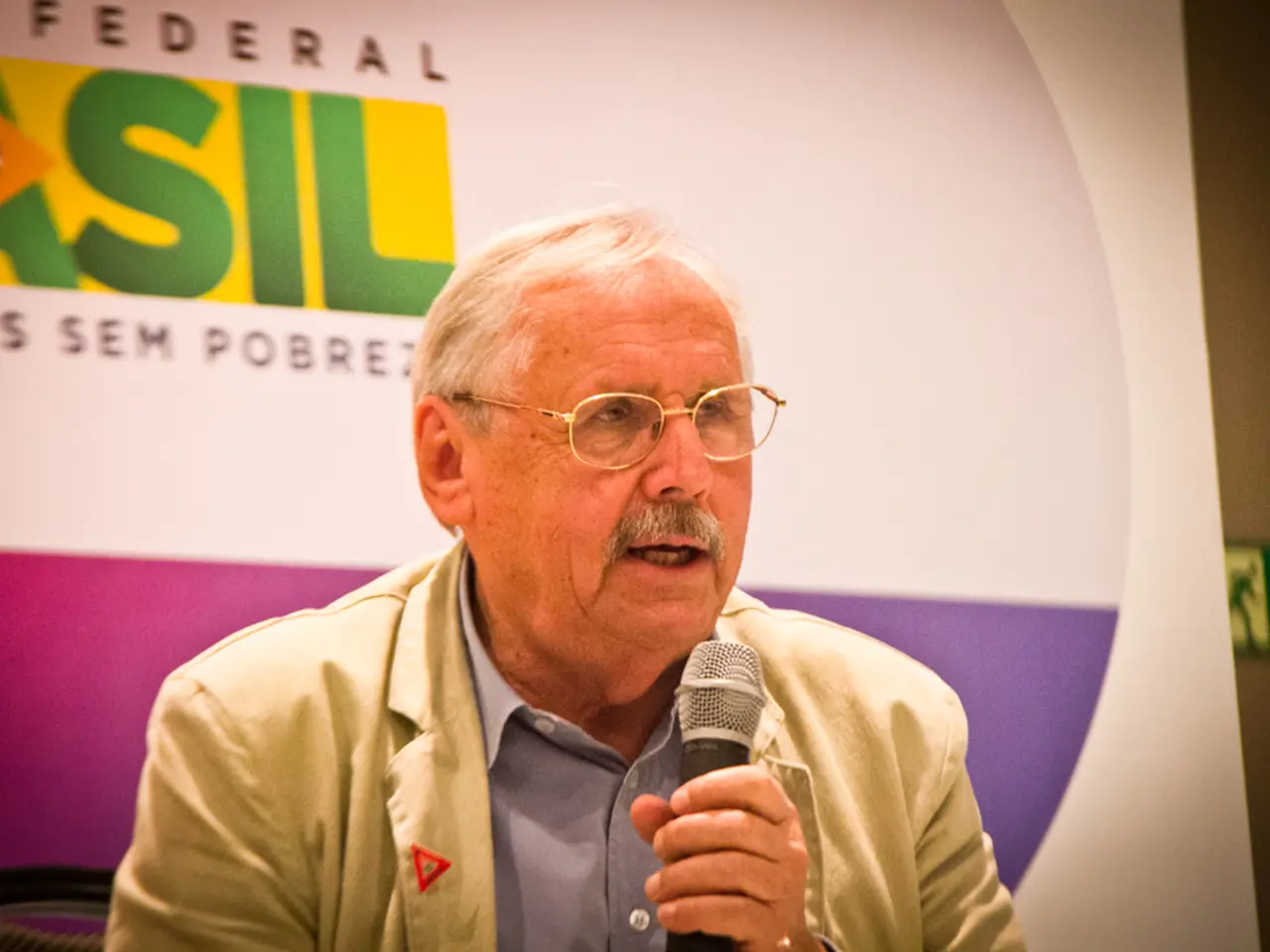Judge appointments seek reform, advocated by Woidke
Germany's Federal Constitutional Court Appointment Deadlock Deepens
The appointment of three judges to Germany's Federal Constitutional Court has hit a roadblock due to a political conflict within Chancellor Friedrich Merz's conservative coalition. The dispute revolves around the nomination of Frauke Brosius-Gersdorf, a constitutional lawyer, and the controversies surrounding her candidacy.
The Union, the conservative bloc in the coalition, has expressed reservations about Brosius-Gersdorf. These reservations are likely rooted in contentious issues such as a questionable plagiarism claim and her stance on abortion, which have sparked emotional and political clashes and broader skepticism about her suitability for the role.
Brandenburg's Minister President Dietmar Woidke (SPD) has proposed a fresh start to the process, urging all candidates to withdraw and for the factions in the German Bundestag to restart the entire procedure. This proposal comes as a response to the deadlock and the uncertainty it has brought to Germany's highest court.
The election of the judges was unexpectedly removed from the Bundestag's agenda on July 11, due to resistance within the Union faction against the SPD's nominated candidate, Frauke Brosius-Gersdorf. The Union has nominated federal labor court judge Günter Spinner as a candidate in response.
The SPD has proposed an alternative candidate, constitutional lawyer Ann-Katrin Kaufhold. However, CSU parliamentary group leader Alexander Hoffmann's proposal to draft a new judicial package was met with resistance from the SPD and the Greens.
Woidke urges all parties involved to reach an agreement and advises including the opposition parties, excluding the AfD, early on in the process. He believes that the parties needed for a two-thirds majority must be involved early on, specifically the Left Party and the Greens.
Since 2021, Brosius-Gersdorf has held the chair for Public Law, with a focus on Constitutional Law and Social Law, at the University of Potsdam. Woidke emphasizes that the candidates who have been nominated so far could also stand for election in a new procedure.
Woidke finds it incomprehensible that a qualified candidate has been discredited in this manner by some parts of the CDU/CSU. He criticizes the CDU/CSU for not following the agreed path due to a lack of leadership, and believes it is necessary for the factions in the Bundestag to quickly find a way out of this situation and submit a solution.
This standoff has led to an unprecedented state of uncertainty for Germany's highest court, prolonging the political impasse and contributing to a crisis in the coalition government's stability just shortly after Merz took office. The hope remains that a resolution can be found to fill the vacancies on the Federal Constitutional Court and restore stability to the German political landscape.
[1] Source 1 [2] Source 2
Politics surrounding policy-and-legislation have escalated, as Germany's Federal Constitutional Court battles a deadlock in the appointment of judges, caused by a dispute over the nomination of Frauke Brosius-Gersdorf. General news reports suggest that the Union, a conservative coalition, has reservations about Brosius-Gersdorf, due to contentious issues like a plagiarism claim and her abortion stance. [Source 1] [Source 2]
The ongoing political conflict threatens to deepen the crisis in Germany's political landscape, as the court's stability hangs in the balance. The election of judges has been removed from the Bundestag's agenda, and negotiations for a new candidate have stalled. [Source 1] [Source 2]








